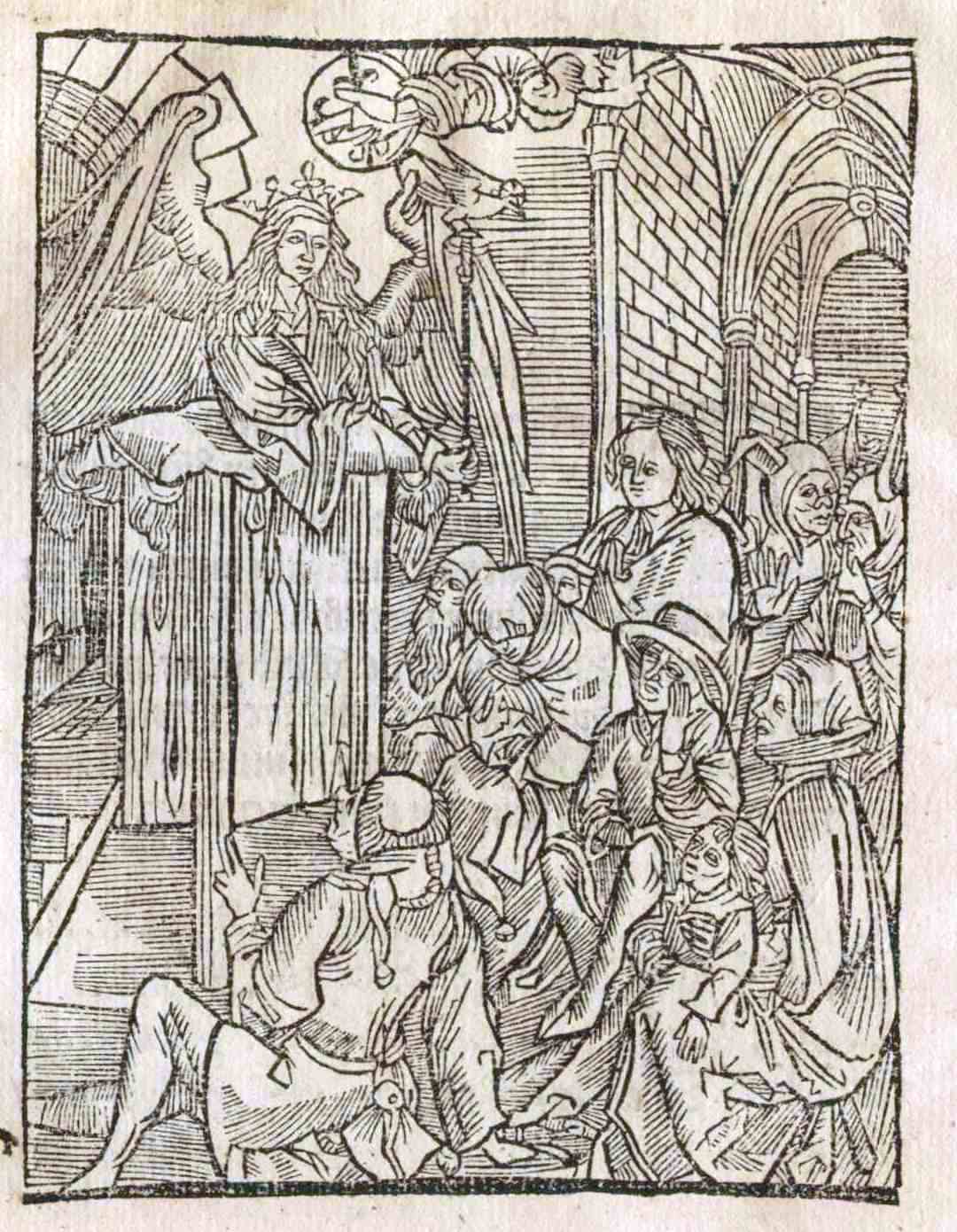By: Christopher Lyons, Head of the Osler Library
Thanks to an anonymous gift, the Osler Library has acquired two extremely rare incunabula books published in 1498 and c. 1500 for our collection. These were written by Dr. Symphorien Champier (c.1471-1539), a French Renaissance physician whom Osler admired a great deal and collected extensively.
The donation was made in memory of Dr. Joe Stratford, M.D.,C.M. 1947, F.R.C.S (C), (1923-2007). He was Professor of Neurosurgery at McGill University and Chief of Neurosurgery at the Montreal General Hospital for 30 years. In the 1970s, he and Professor Ron Melzack founded the first multidisciplinary pain clinic in Canada at the MGH which is now the McGill Pain Centre. He was deeply involved in initiatives to improve palliative care and was active in the Victorian Order of Nurses. He is remembered for his kindness and compassion.
The rarer of the two books is the Isagoge in gra[m]maticam disciplinam [et] logicam, published in Lyon in either 1497 or 1499/1500 is a grammar and logic book and Champier’s first work. More importantly, it is the only known copy in the world.
The second work is the first edition of Dyalogus…inmagica[rum]artiu[m]destructionem. Also published in Lyon by GuillaumeBalsarin in 1498, the work is a study of witchcraft and the occult, which was a topic of particular interest to Osler. This is a particularly fine copy of this rare work in which, in dialogue form with his student, Champierdefines, explains,acceptsorrejectsawidevarietyofoccult practices from a medical perspective. He recognized, for example, that the allegedly possessed needed a healer, not an exorcist. The work includes a full page woodcut illustration of Wisdom lecturing fools and the ignorant (see attached). WorldCat lists only 6 libraries that hold this work internationally. Neither of the two great historical medical libraries, the National Library of Medicine nor the Wellcome Library, own copies of this work.
Symphorien Champier (c.1471-1539) was born in a small village near Lyon, France and studied at the University of Paris. He entered medical school at Montpellier in 1495 and finished his degree in 1503. He was an active physician, treating both rich and poor, and the founder of a hospital and the medical school in Lyon. He was also a major figure in Lyon during the Renaissance. An unusually active author, he wrote not only a number of medical works but numerous treatises on philosophy, history, and theology. He was a leading proponent of medical humanism, and a mentor to Michael Servetus, whom Osler esteemed greatly.
Not surprisingly, Osler was an admirer of Champier’s, describing him in the Bibliotheca Osleriana as “a man of large and liberal culture, of a truly noble nature, an admirer of learning and a patron of the learned….Indefatigable in his proper calling, there was yet nothing which interested the citizens of Lyons that did not interest him…. A true physician, a great and good man.”
Osler actively collected his works, amassing 14 works for his library and giving others as gifts to other libraries, as was his tendency with his favourite books. When sending one book to the College of Physicians of Philadelphia, he noted that “Champier was a great old character and all his books are worth buying.” Unfortunately, Osler wasn’t able to acquire everything he sought during his life time. The competition for Champier’s works was strong, and the prices relatively high. In one 1909 auction the prices of two early Champier works that Osler bid on unsuccessfully were sold at prices two and three times higher than what he paid for a copy of the very rare 1543 first edition of Copernicus’ monumental work on the solar system.
In addition to their value as works by a notable medical author and humanist, these two works are important in the history of printing. Lyon became one the main centres of printing in the 15th century and was, after Paris and Venice, the most important printing centre in Europe prior to 1601. All the early Rabelais, Louise Labé and a group of Lyonese poets, and much more was produced there.
McGill’s Osler and Rare Books and Special Collections libraries have a representative collection of Lyon imprints, including several from the 15th century. Researchers from McGill an elsewhere are currently studying these works. There is a Lyon Project taking shape in which McGill researchers are collaborating with those from other Montreal-area universities to create a database of pre-1601 Lyon books held here. This project involves training students during the Summers to create bibliographic records in the database, working on the historiography of early Lyonese imprints, and developing more technical knowledge involving printing and types.
The two works were acquired from Bruce McKittrick, a long-established antiquarian book dealer in Philadelphia with whom the Osler has done a considerable amount of business. Thanks to Professor William Kemp, La Chaire de recherche du Canada en histoire littéraire, UQAR, and Research Associate, McGill University, for alerting the Library to the Isagoge and providing expert advice throughout the process.
Many thanks as well to Steven Spodek, the Library’s Development Officer, whose ongoing efforts made this and many other donations possible. Because the Osler Library has such rich holdings, filling in gaps in our collection of very rare and important works or authors is an expensive undertaking, and fundraising efforts like this ensure that our collection grows.
The McGill Library, specifically the Osler and Rare Books and Special Collections, has over 300 incunabula, which is the largest collection in Canada.

















Leave a Reply
You must be logged in to post a comment.